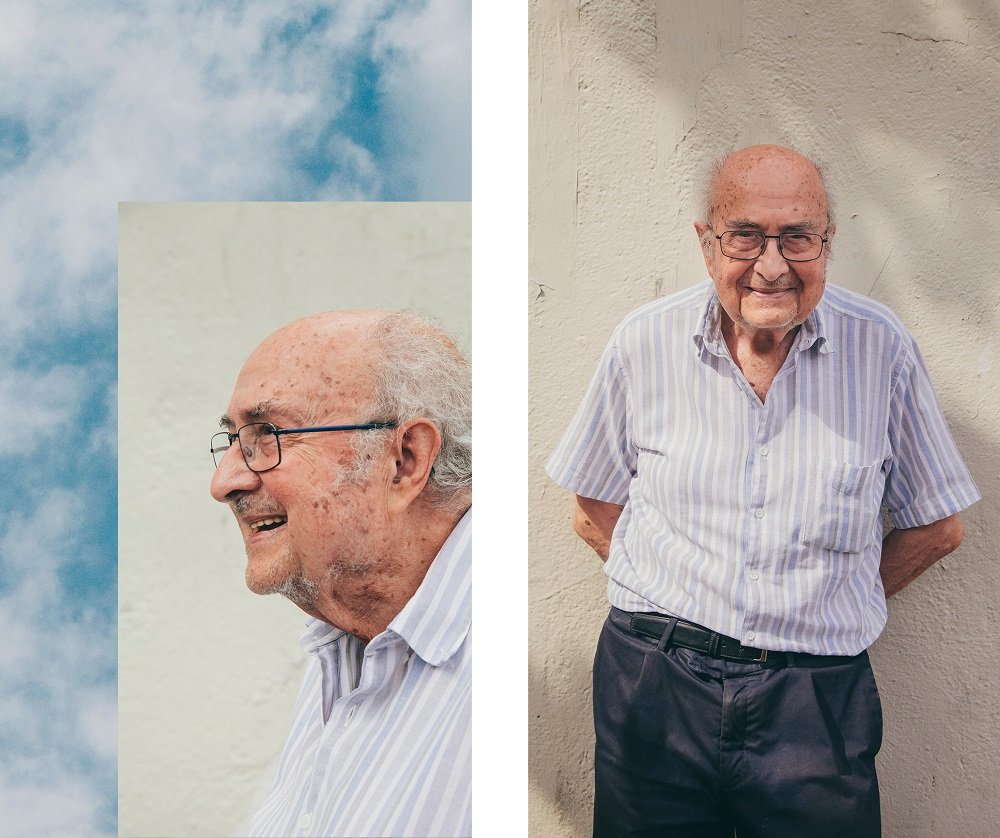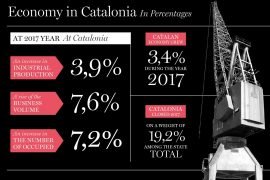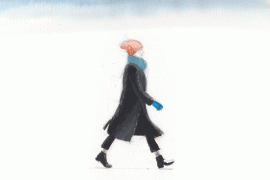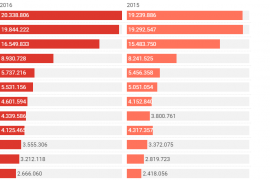A few years ago, you wrote in an article that “not all people who feel pain suffer, nor do all those who suffer feel pain”. What is suffering, and in what sense it is different from pain?
I’ll give you an example. A pregnant woman who goes into labor knows that she will have a bad time and that she will feel a lot of pain. But if she is expecting a desired child, the pain passes without suffering. On the other hand, when we face a situation that we do not control, a situation of uncertainty, then suffering appears. Because we are human. We want to know the consequences that things will have and, above all, be able to take decisions about them.
That is, perhaps, the reason why it costs so much to accept death?
Of course. Although it may emerge in all aspects of life. For example, when you have an appointment with someone you like a lot and you’re not sure if he / she will come. Until you see him / her arrive, you feel a very unpleasant uncertainty, because the evolution of the situation does not depend on you. In palliative care or in cases of serious illnesses, not knowing what will happen, i.e., not being able to make plans and not being able to live life day to day can be very tough.
How can the suffering of those who are in palliative care be relieved?
Each person is different, so the only universal way to help is by listening: try to understand the other person, understand what he / she feels, what you can do to help him / her and fully respect whatever his / her beliefs, past or expectations may be. It changed a lot the way I used to think a work by Eric Cassell, in which he explains that the one who suffers is not the body but the person.
And, what is a person?
It is not your body, or your brain, your family, your social or affective environment or your roots. The person is the biography, it is a journey. A journey that begins when you are born and ends when you die (or when someone stops thinking about you once you have died). A journey that changes constantly, and that is unique. There are not two identical trips. This is the secret when approaching a sick person, or the end of life: to realize that everyone has unique desires and expectations, and to listen to them to adapt to the person.
How does a program such as the Comprehensive Care for People with Advanced Diseases by Obra Social “la Caixa” contribute to Spanish healthcare?
Years ago I gave some conferences in the framework of the program, so I know first-hand people who are working in related palliative units. The truth is that I think it has helped a lot, it has opened some doors that were closed, and it was important to open. We need a great dose of listening, of observation, of love and of sharing with other people this incomprehensible world in which we find ourselves. I am about to turn 88 and I know that I will leave this world without having understood much…
But you have not stopped trying. That is pretty.
Yes, in death there is poetry too. I would say there are two good ways of approaching it. One is giving thanks for the life that one has had. Like the British neurologist and writer Oliver Sacks, who died a couple of years ago. He had terminal cancer and shortly before his death he wrote an open letter in The New York Times thanking all the beautiful things that had filled his life. The other way to face death is by learning. Because, as long as you have the capacity for it, learning never ends. The philosopher Bertrand Russell said that we are in the world for two things: on the one hand, to expand knowledge through science and research; on the other, to expand love and understanding between people. And in both cases, there are no limits.
Is happiness the absence of suffering?
It is not so simple, I rather think it has to do with feeling of being “out of this world” at a certain time. As if you were eternal, and time and everything else would not mind. It’s a feeling of being at peace, that everything makes sense, even if you do not understand anything. But you are immersed in the world and in others. For me, that is happiness. For another person, it may be something different.
You are also a great cinemagoer. In fact, for years you have been collecting movies that can help overcome mourning with Dr. Beatriz Ogando. What has the cinema that can help us face suffering?
Cinema facilitates empathy, helps us to understand others. There is an extraordinary film: Love, by Michael Haneke. It helps you to empathize with two people who love each other, who have lived all their lives together. When she falls very ill, he takes care of her until she cannot resist anymore; finally, he kills her for love and then commits suicide. Without going any further, something similar happened in Spain last week. There are cases in which people see only suffering and impotence. I recommend Soltando Amarras, a recent book in which Colombian neuropsychologist Eugenia Guzmán talks about the different ways of dying.
Given that suffering is so subjective, does the palliative care staff have any way to evaluate it?
A good indicator can be asking the patient about his / her perception of time. Because, if the time is felt as long, it means that something is not working. If you are not comfortable, the minutes are eternal.
There is a privilege that doctors, lawyers or teachers have. Well, after all, all human beings may have it. Sometimes you are in a public place and some stranger approaches you and says: “Surely you will not remember me, but years ago you pronounced some words that changed my life”. And you do not remember what you said or who the person is, or when it was, but whatever it was, you created a magical moment in which a few sentences or a gesture coincided with all the complexity of that person’s needs.
So, although sometimes the palliative staff do not see results, they should not feel despair. Because almost always we ignore what word, attitude or gesture can positively influence the other. That is the reason why always, always, we must keep trying.
Interview: Patri Di Filippo
Photograph: Laia Sabaté
You can read more stories like this on ALMA, the social social media, a digital space devoted to the social field, which brings a new look at the present and the future of society, from an optimistic and diverse point of view, and from all the initiatives that “la Caixa” Foundation promote.





















